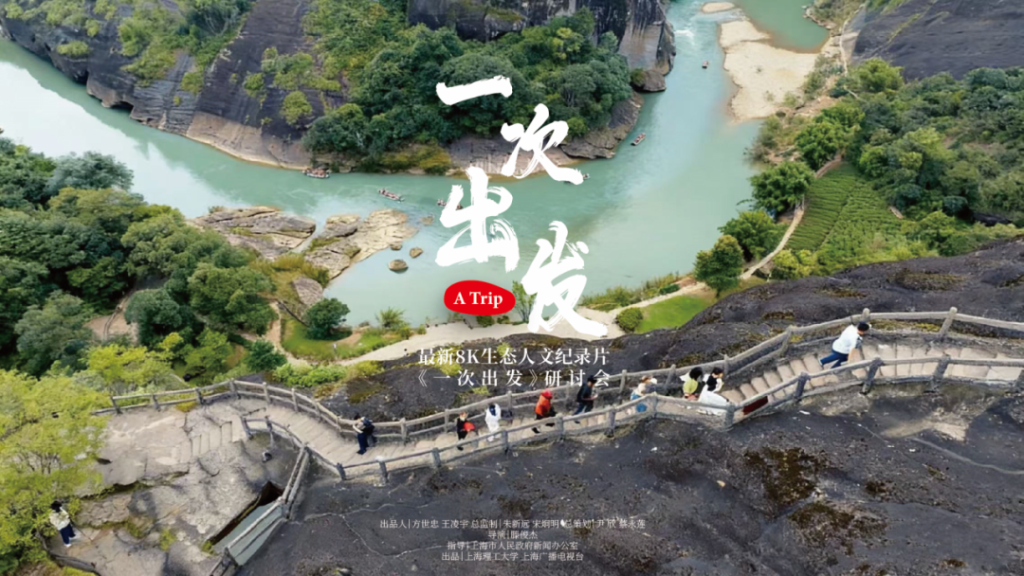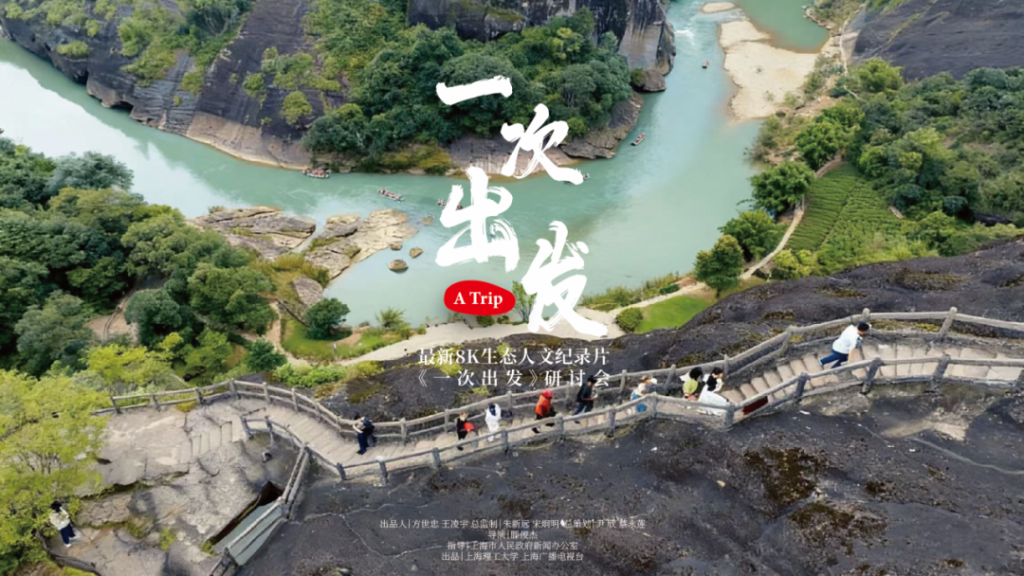
Recently, China Central Radio and Television released its list of 2023 documentaries, and 50 high-quality documentaries will be broadcast on CCTV this year. Among them is a documentary "about life in Xinjiang" - "Bazaar".
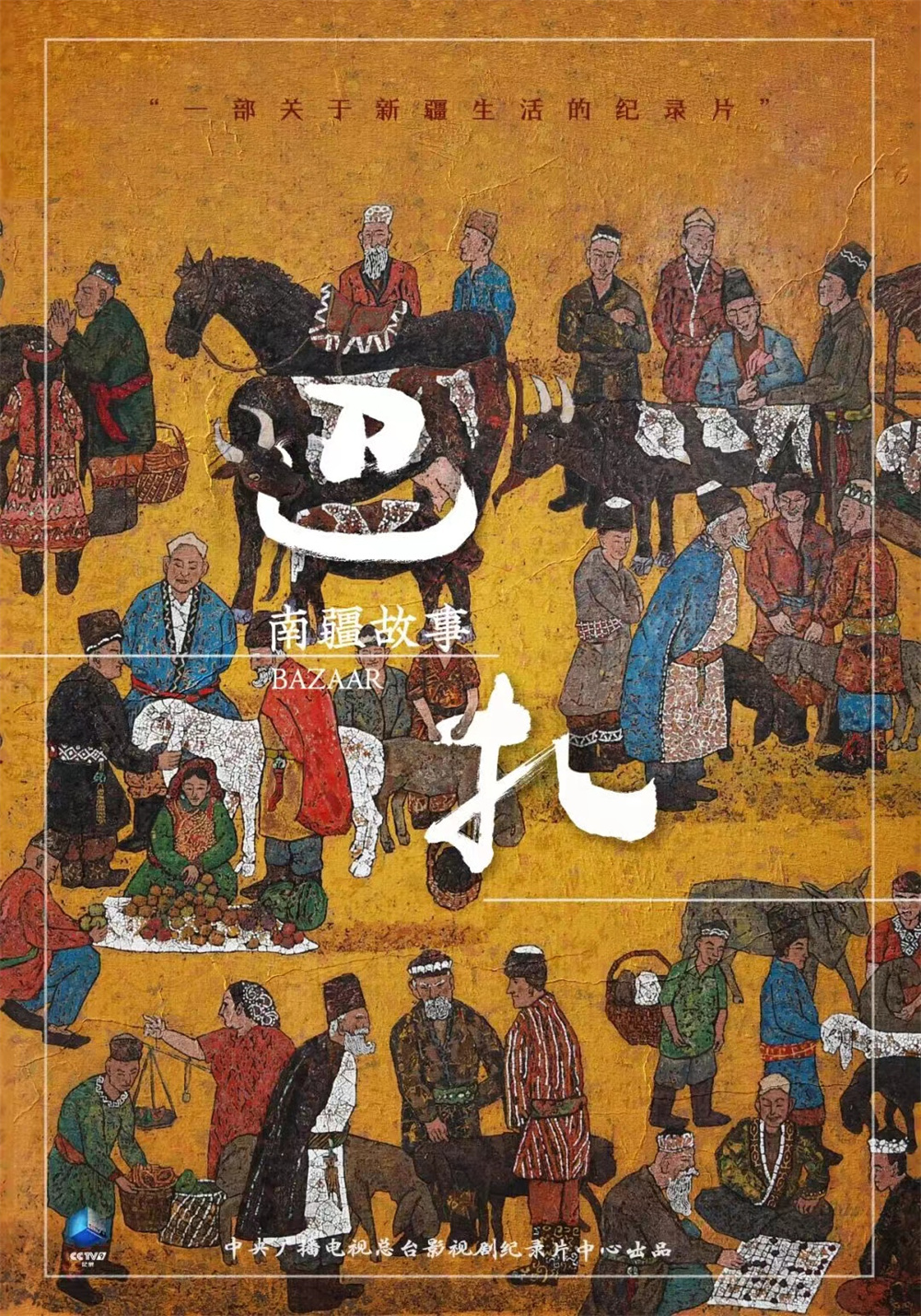
"Bazaar" poster
The bazaar is the bazaar of the oasis, but the bazaar is not just the bazaar, as the local proverb says: "The bazaar is the father, the bazaar is the mother, and the bazaar is everything in the world."
The six-episode original documentary series "Bazaar" is produced by China Central Radio and Television, and produced by the Central Television Documentary Center. From February 24th to March 1st, it will premiere on CCTV Record Channel (CCTV-9) at 19:00 every day , CCTV broadcast simultaneously.
The documentary "Bazaar" finds the most vivid bazaar stories by searching for six distinctive bazaars in Xinjiang, records the daily portrayals of the people living here, and presents the real, simple, lively and enthusiastic life in Xinjiang to the audience.
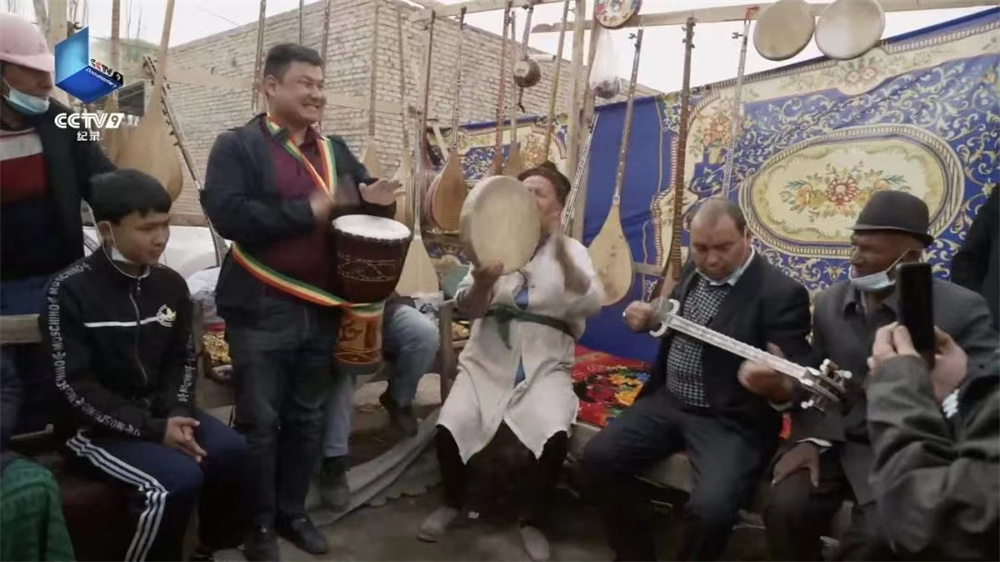
"Bazaar" stills
An oasis at the western end of the Taklimakan Desert is called Markiti. Here, a unique community has lived for thousands of years: the Daolang people. Daolang people are famous for their enthusiastic singing and painting. The ramen that Dolan people like to eat is also called handle noodles. The ramen shop in Abdul Kerim is the place that conquered the taste buds of Dolan people, and the business is very good. The old man has been selling ramen for more than 30 years, and he soaks in the bazaar every day. But when he mentioned the bazaar, he still couldn’t hide his excitement. He said: “There are sellers in the bazaar selling meat, rice, vegetables, fruits, clothes, everything, and it’s cheaper than the shops in the county. , this bazaar is a serious bazaar!"
In the bazaar, there are everything from cloth, beef and mutton, fruits and vegetables, and all kinds of sounds can be heard endlessly. People flowed from one stall to another, but there was only one sound that could stop the market-goers from hurrying, and that was the sound of Xia Muxi, the most popular musician in Jiashi County Grand Bazaar, playing Dutar. Xia Muxi and his good friend Wu Siman come to the bazaar every week to perform and sell pianos. Although the number of pianos that can be sold is very limited, their performances at the bazaar are very popular, and even unexpectedly became popular in the live broadcast room. It is Xia Muxi's favorite to come to Bazaar to perform every week. The audience's applause and praise make him feel very satisfied...
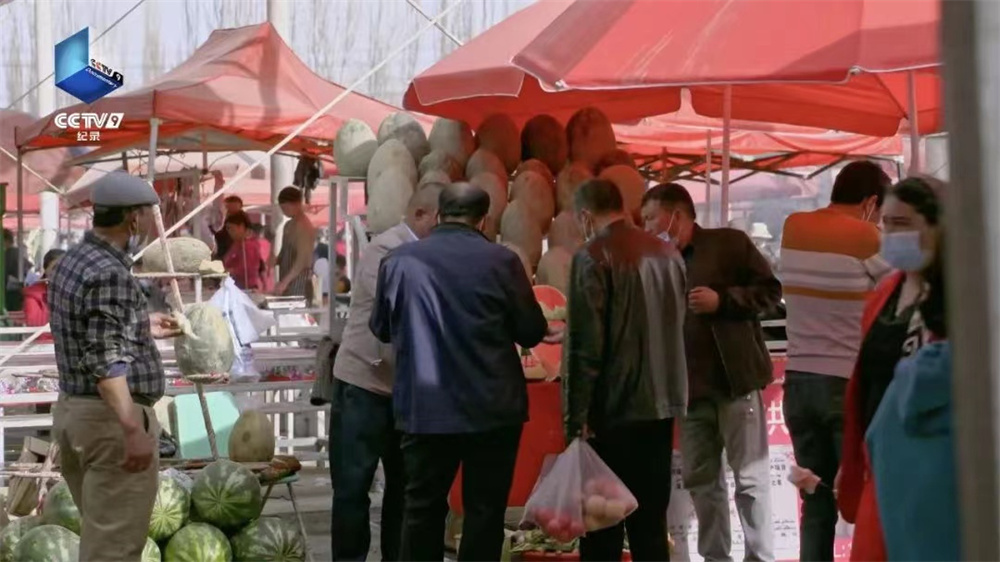
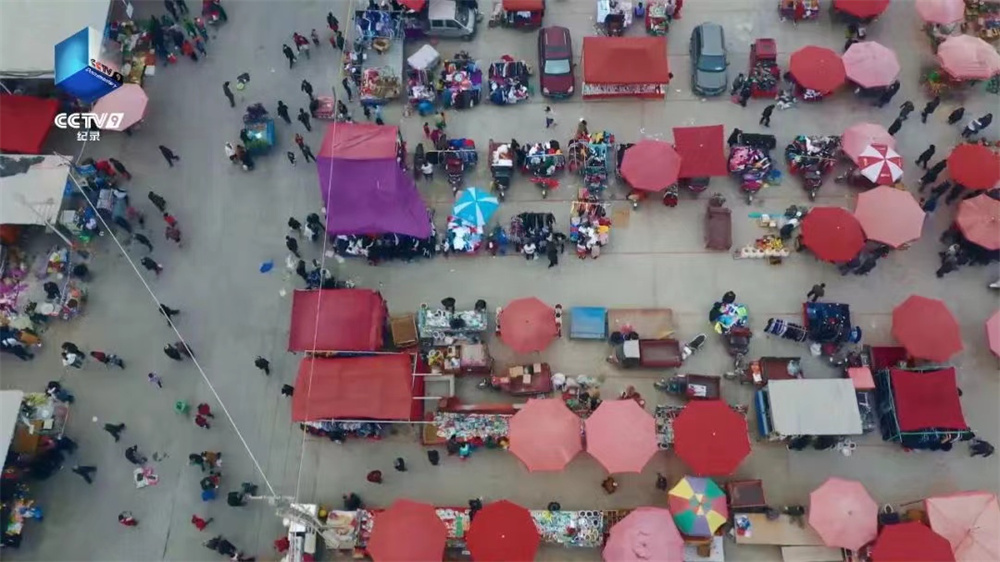
"Bazaar" stills
The bazaar is also a stage for craftsmen, where old craftsmen proudly demonstrate their ability to live and work. There is a barber who is the oldest craftsman in the bazaar and has set up a stall in the bazaar for more than 70 years. Those haircuts around are all his apprentices. There is an old man who is a carpenter himself and has been selling mangers in the bazaar for thirty years. In his view, Bazaar is not only a place to do business, but also a place to make friends. The small manger stalls are all taken care of by friends. "Even if I'm not around, these old friends will sell the goods for me!" said the uncle proudly. They are obviously already like a family, and this may be the true meaning of Bazaar!
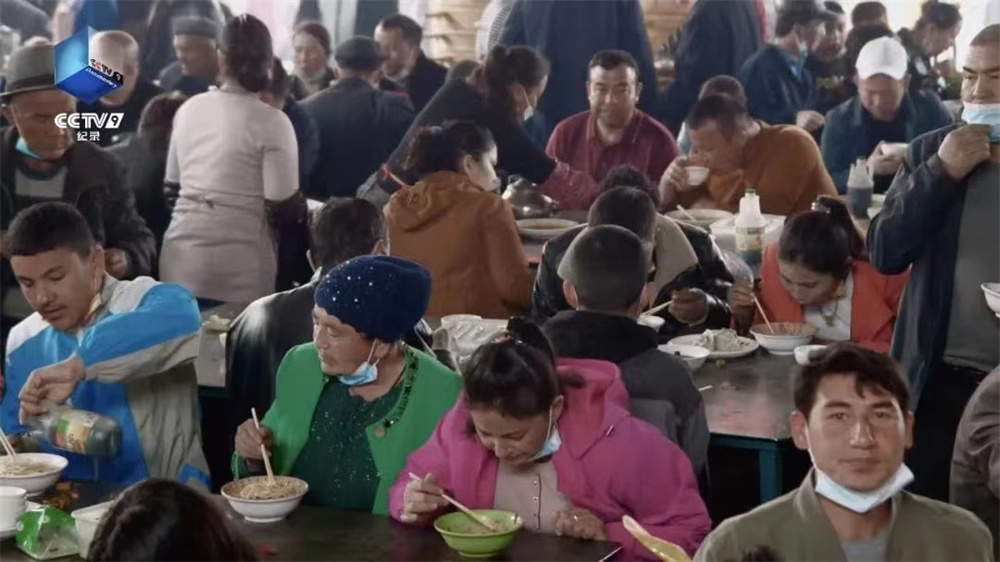
"Bazaar" stills
Bazaar on weekends is always the busiest place in the county. Turukhun Kurban is a well-known melon merchant in Zepu County. On the weekly bazaar day, you can always hear his enthusiastic cries: "Melons, little dolls don't want money, widows and old people don't want money!" What's sweet is not only melons, but also the strong human touch. As Tu Luhong said, "I can do without selling melons now. My life has entered a well-off life. I also contract the market, but I love bazaars, so I can't do without the melon business for the rest of my life!"
The Yulong Kashi River is known as "the most expensive river in the world" because the seeds of Hetian jade are produced here, and people from all over the country shop for treasures here. The Jade Bazaar, which has spawned countless wealth legends, also attracts countless keen gold diggers. Bargaining requires the mastery of various "strategies". Even in a stalemate, it is possible to "counter-kill" in one fell swoop. Since it is a "competition", it is natural to take a little risk. Who can tell that there is no "goods" in this "stone-packed jade"? The so-called stone-wrapped jade means that there may be a piece of pure jade hidden inside the appearance of the stone. In that case, the profit may be more than doubled. It may also be a stubborn rock inside, and the money spent was wasted. Seriously inspecting, sizing up, and comparing every penny, the Jade Bazaar has become a stage for wealth legends.
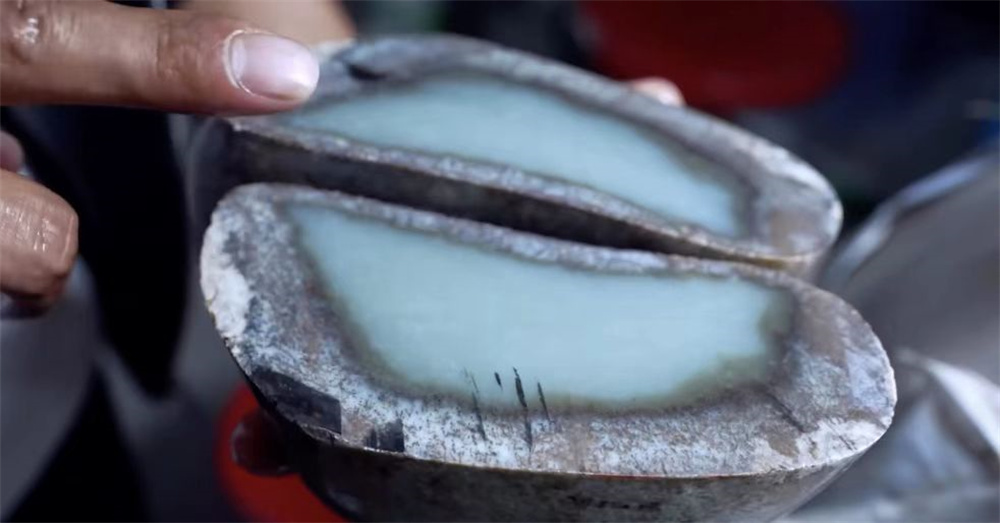
"Bazaar" stills
Visiting the bazaar is really like opening a kaleidoscope.
